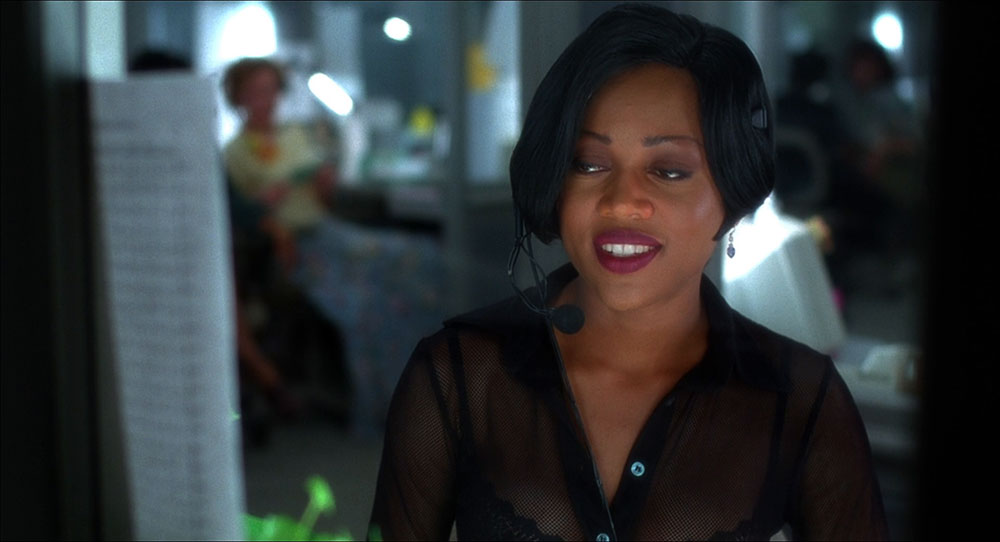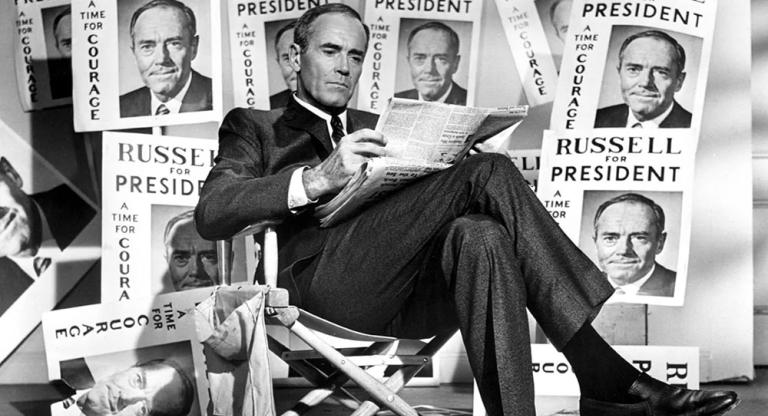This essay has been published in “Women, Workers, & Whores on Film” Zine with the title “All of you girls are W- H- I- T- E”
Race meets sex, or rather, Blackness engages in sexual, fantastical play in director Spike Lee and screenplay writer Suzan-Lori Parks’s Girl 6 (1996). In the film, the working-class actress Judy (Theresa Randle) seeks work as a phone sex operator after she experiences directorial sexual mortification from QT (Quentin Tarantino). Her hope is that this form of auditory sex work will give her the sexually uninhibited chops to land the role—one that requires her to expose her Black body. After all, Girl 6 is a cinematic text on the pornographic fantasy of the Black woman’s body. Judy relies on this form of sex work for financial stability; she is faced with the reality of her current condition as a struggling, sexualized, and racialized actress; and, she is pulled into the fantasy of what both work and reality mean as a condition. As an elaborate confrontation with the darker registers of the realities of Blackness and desire embodied by Judy, the concept of fantasy is reconcilable with truth. Ultimately, fantasy is driven by the symbiotic psychological needs and desires shared between herself and the anti-Black world.
The notion of bodily exposure yields complications in an anti-Black society, as Judy internally reckons with the dichotomy of nudity and nakedness. Art historian and curator Deborah Willis, writer and visual artist Carla Williams, and art critic John Berger contend with the notion that nudity speaks to the idealized rendering of objecthood through the onlooker perspective, as nakedness is a rendering of the self without concealment. Girl 6’s charge of this libidinal offering is a drama between the private and public. Though this is a theatrical process to further her career as an actress, Judy rummages through the classified section of the newspaper, where she is challenged to consider becoming a phone sex operator. In consideration of two phone sex operator positions as an interior exercise to better connect with the unclad parts of her way of existing, the extra money could not hurt at all. Initially, Judy settles for her perception of safety, which results in working in a sex work call center for Boss #1, also known as Lil. Most Spike Lee films often struggle with their Black woman figures, as demonstrated by the film’s uncomplicated moralistic positions toward the racialized premises of sex work and labor within a sexual economized class. There is a cinematic sexiness to the film, but as a reflection of Lee’s values, Girl 6 psycho-sexually loses herself to the overstated dark and dangerous world of the sexual economy to indicate the unsustainability and immoral values of the work.
Judy/Girl 6 is officially part of an assortment of faceless, but not raceless girls. There is something very enticing, yet disorienting, about the ways that the girls are often reminded of who they are and who they are not as they perform as the sex operator. Lil (Jenifer Lewis) is cautious and protective of the girls in that she seriously takes on the line of separation between the work, the reality, and the fantasy. In a training with the girls, Boss #1 states, “Unless they request—all of you girls are W- H- I- T- E. Additional characters can include Black girls, Puerto Rican Girls, Asian Girls. The whole ethnic gamut. Also, foreign girls—French and English accents.” Lil’s compartmentalization of racialized sexual fantasy in the workplace is unsatisfactory to Girl 6, leading her to take additional work home. And because she seeks an unrestricted form of auditory sex work, Girl 6 takes on a second auditory sex-based job working for Boss #3 (Madonna), as a disruption to the fantasy of safety. Judy cares nothing for the dichotomy of falseness and realness within the fantasy that she embodies. Fantasy is not solely about the visualization of a thing, but rather a submission to a desired way of existing. Therefore, the interplay between Blackness and sexuality is not only mapped onto Judy/Girl 6’s body, but a sexual fantastical narration of her existence.
Girl 6 screens tonight, April 4, and on April 7 and April 10, at Anthology Film Archives on 35mm as part of the series “Women, Workers, and Whores on Film.” The film will be preceded by Ayanna Dozier’s Nightwalker.



